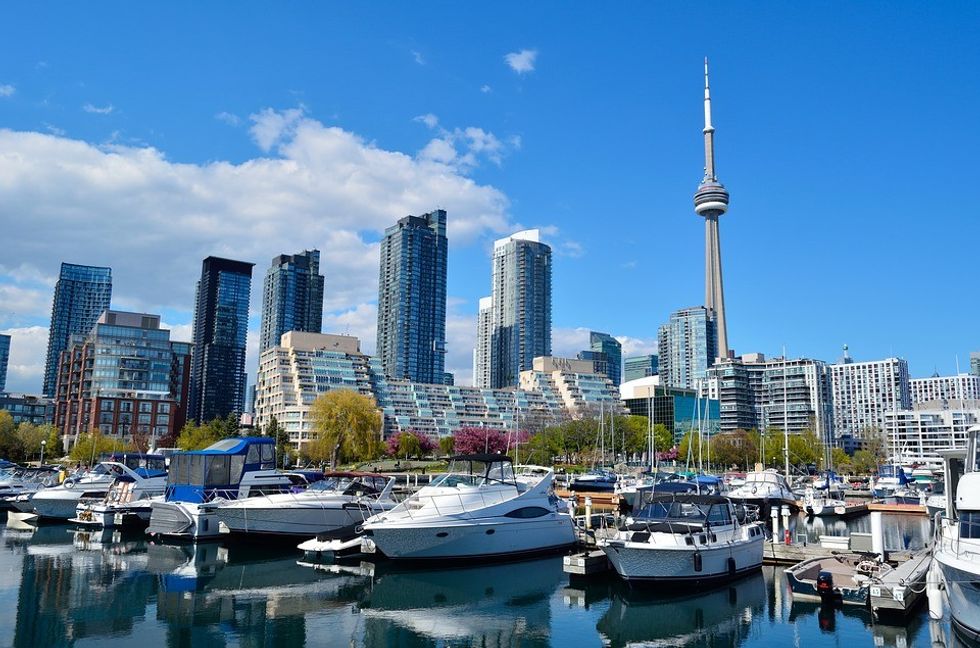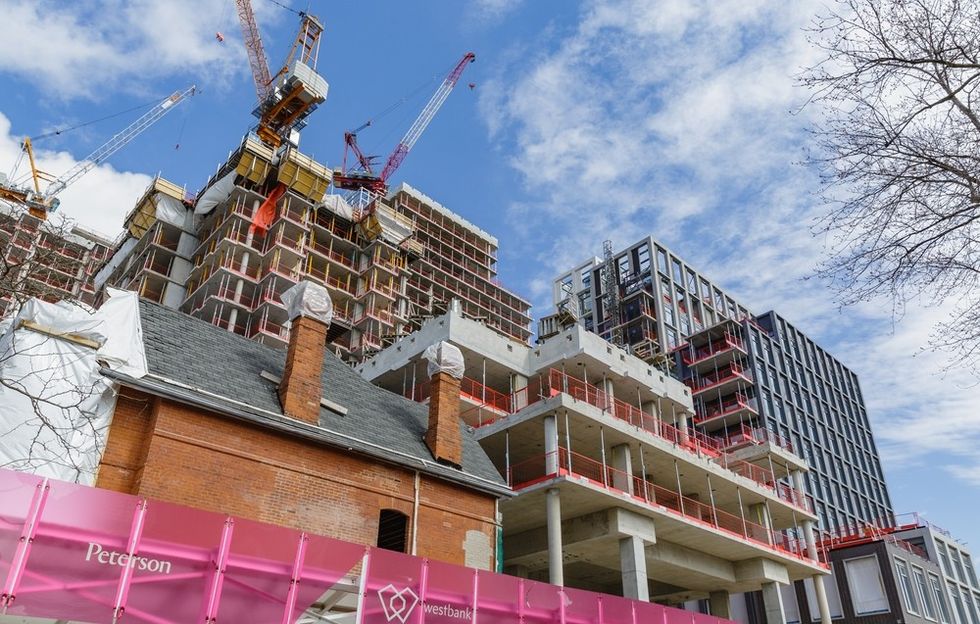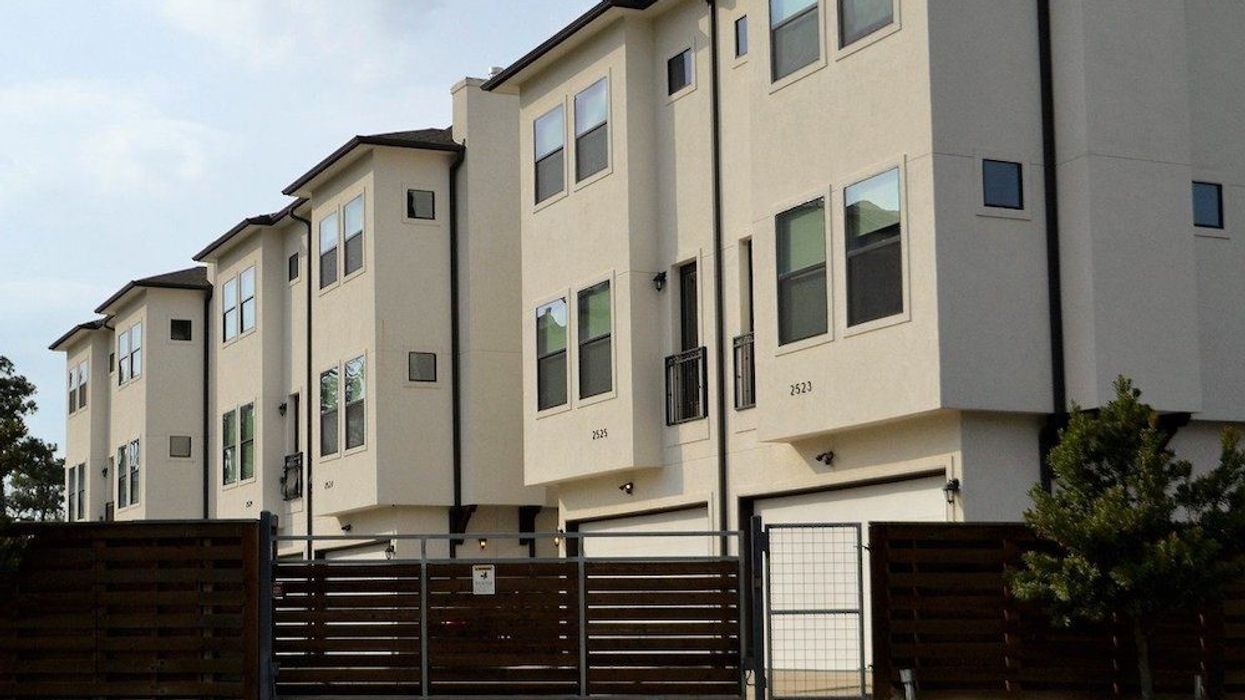The federal government announced a major investment in Toronto’s affordable homes on Friday morning. The government said it would offer more than $105M in contributions and low-cost loans through the Affordable Housing Fund (AHF) to help build and repair 5,235 affordable homes in the city. This is line with the broader purpose of the AHF, which is to provide funding through low-interest and/or forgivable loans or contributions to help build new affordable homes and renovate and repair existing, affordable, and community housing.
The announcement was made at Gower Park Place, a 164-unit apartment building located at 10 Gower Street in East York that provides affordable housing to low-income families, seniors, singles, persons with disabilities, and others in need.
On behalf of the Honourable Sean Fraser, Minister of Housing, Infrastructure and Communities, the Honourable Gary Anandasangaree, Minister of Crown-Indigenous Relations, and Member of Parliament for Scarborough – Rouge Park, detailed the initiative. He highlighted how the federal funding would help to create a total of 206 new homes and lead to the repairs of 5,029 homes in Toronto. Minister Anandasangaree also announced $30M in funding for the Governing Council of the Salvation Army in Canada to repair 3,000 units across the country.
“Everyone deserves a place to call their own and the Affordable Housing Fund is one way we’re helping make that a reality for Canadians,” said The Honourable Sean Fraser, in a statement. “We will keep investing in affordable housing projects like the ones announced today, and working with partners across the country, to end the housing crisis.”
A press release details the buildings, which are located across the city, set to benefit from the funding through repairs, new features (things like windows and doors, for example), and renovations.

“We’ve heard the people of Toronto loud and clear: build good homes fast, and that is exactly what we’re working to do,” said The Honourable Gary Anandasangaree. “Today’s announcement means over five thousand new affordable units in our great city; that’s homes for students, families, and hard-working Canadians across the board. We’ll continue to be ambitious and keep building!”
Through the 2023 Fall Economic Statement, the government announced an additional $1B for the AHF, bringing the total funding to over $14B. To further support non-profit, co-operative, and public housing providers and respond to the needs of those most impacted by the housing crisis, Budget 2024 committed an additional $1B to the fund. The program is part of the National Housing Strategy, and prioritizes helping women and children fleeing family violence, seniors, Indigenous peoples, people living with disabilities, those with mental health or addiction issues, veterans, and young adults.
According to the federal government, as of March 2024, it had committed $50.97B through the NHS to support the creation of over 146,000 units and the repair of over 286,000 units.

In addition, yesterday, the feds announced over $84M through the AHF to help build and repair 4,966 affordable homes in Northern Ontario and in many Indigenous communities across Ontario, a nearly $31M investment, also through the AHF, for over 1800 affordable homes in the Durham Region, and more than $96M to help build and repair more than 7600 affordable homes in Kitchener, Waterloo, and Cambridge.
Expediting the creation of these desperately needed affordable homes is Canada Mortgage and Housing Corporation’s (CMHC) just-announced ‘frequent builder framework,’ which will allow applications for CMHC's Affordable Housing Fund and Apartment Construction Loan Program – two of the largest funding programs under the Government of Canada’s National Housing Strategy – to be fast-tracked.
The 'frequent builder' status is given to existing housing providers with a proven track-record of building multi-residential units. Different criteria apply to Governments, non-profit, and for-profit organizations to qualify for frequent builder status. If approved, frequent builders may receive benefits such as priority treatment, a streamlined process through intake, underwriting and approval stages, underwriting and advancing flexibilities, as well as the possibility of funding commitments for future years.





















